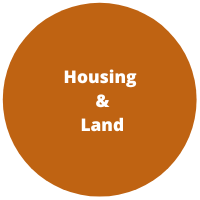This paper describes the historical process of urban-legal reform in Brazil since the late 1970s, especially since the promulgation of the 1988 Federal Constitution and the enactment of the 2001 City Statute. It discusses how the new legal order has consolidated the notion of the “right to the city” in the country, meaning the inseparable combination of the principle of the social functions of property and the city, and the principle of democratic management of cities. Special emphasis is given to the actions of the main sociopolitical stakeholders in this process, as well as to the possibilities and constraints of the new legal order. It argues that the promotion of urban reform and inclusive land, housing and urban policies requires an elusive combination of political, institutional and legal change, and that the effective utilisation of the new legal spaces created by the new legal order depends on the constant renewal of sociopolitical mobilisation in the country.
Davinder Lamba Appointed Interim Chair of Kenya Human Rights Commission
Kenya Human Rights Commission (KHRC) is a premier Non-Governmental Organization (NGO) established in April 1992 with a mandate of enhancing human rights-centred governance at all levels in the society. [...]


